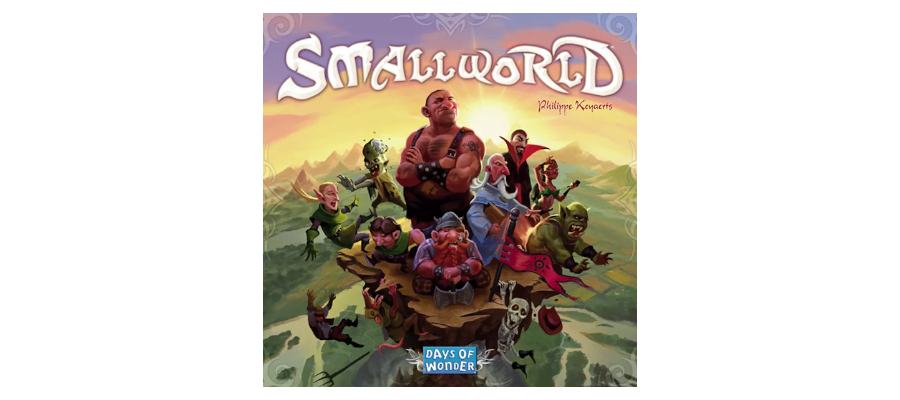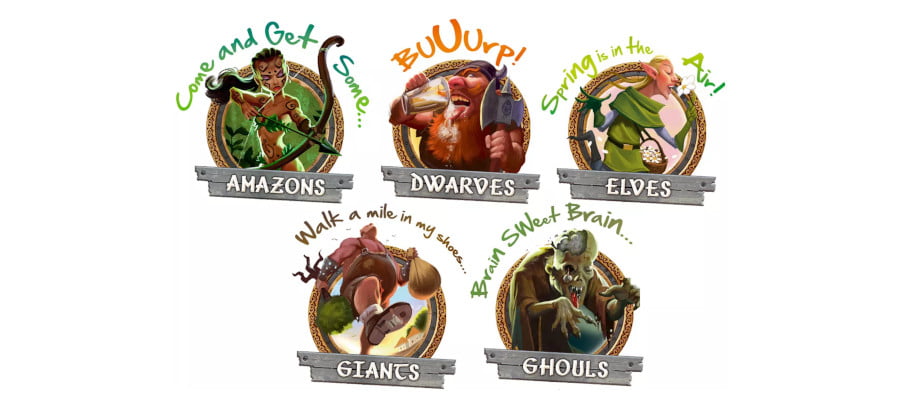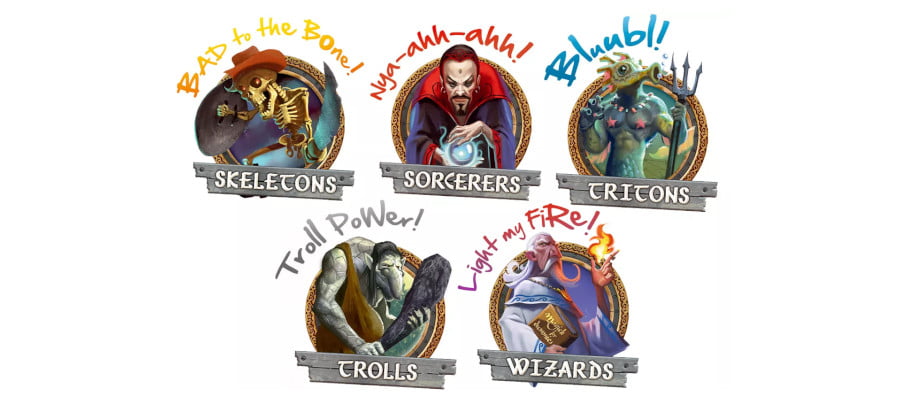Ah, the clash of civilisations! The imposition of different species against one another, in the great and ongoing war for resources, informed by fantasy kingdom fiction! Small World, a board game that I just want to underscore here I like enough to play when I have the opportunity, but not like enough to own, is a game by Phillipe Keyaerts, and published by Days of Wonder.
It’s a delightful little game in that particular type of ‘fantasy cultures building out across a bunch of land,’ and works on the very specific intention of making sure there’s not quite enough space for anyone to just get along. It’s literally a game about a small world. Oh hey, that’s the name. You’re not going to be managing food or water supplies in Small World. It’s not quite that type of civilisation game. It’s much more abstracted, where you smack down little piles of tokens to represent who is where and how much of them there are.

Here’s your really rudimentary discussion of Small World. You start out commanding a race of peoples, like orcs and elves and dwarves and giants and whatnot, and that culture then spreads across territory with whatever its particular rules are. You claim territory, you get rewards for claiming territory, and then eventually, you’ll find you’re at the limits of what you can or can’t do or defend, and at any point you want to, you can declare your current civilisation as being in decline. You clip over your player tile, you get some slightly different rules, and you start playing with a new gaggle of tiles that represent a different group of people.
But your old tiles stay on the board. They’re still there. Which means they still get you, the player, some kind of advantage or remuneration (gotta get them nummies) and if any other player wants that territory, they have to tear up your old units. You can’t do it repeatedly, I mean, you can’t have a new culture until your old culture is properly mopped up, so the game goes through these pulsing wax-wane scenarios where you’re trying to spread out as wide as you can and then bail and leave something inconvenient for someone else, because it’ll make you money as you take the money you earned on the way out of the door. It’s kind of like being a CEO.
There are a bunch of variants of Small World. The version I played most recently and that’s in my mind is Small World Underground, which has a cute system for giving each race category a special power. There’s a World of Warcraft version which tries to express the world of Azeroth, which is renowned for factional alliances as well as its factional in-fighting, and y’know, that feels to me like a miss on the flavour department, but who am I to say.
Oh I’m me. I’m me to say.
Yeah that’s dumb.
Anyway, Small World is a game with a bunch of versions which range from extremely rudimentary, tightly refined from the previous game version Vinci, and more fancy like, well, Underground which gives every combination of race and a special power into weird stuff.

There’s this idea in game studies, which I read in Half-Real by Jesper Juul, about different ways to summarise game types. There, he describes games as being Race games, Chase games, or Place games — the idea that you can cook games down to broad interaction types like this. This meme is one I see game designers play with, where you can keep adding types of game mechanics that aren’t represented by the other terms that exist but still fit the same naming convention.
The one I’m the most fond of is grace games, where the whole point of the game is having the tools to protect other players, and not yourself, which is a kind of cooperative game design. I don’t have an example of a grace game as designed, but it’s still a mechanical structure that involves playing with the words.
Anyway, one of the types that comes up in this list is displace games, where each player is trying to take actions that exploit the way other players are positioned in a way that forces them to leave their place and take that place from them. Notionally, a displace game is one where, strategically, the places taken by my opponents are more valuable not just for their own sake as territory, but because displacing my opponents out of them deprives them of the territory as well.
Conceptually, though, designing a displace game seems to present an obvious design problem: If the best action you, the player, can take, is to take territory that an enemy controls, then it seems an obvious play loop is one where each player just keeps passing the same territory back and forth between one another. Small World addresses that by allowing you to completely vacate your current play state and let it run on auto, as it were. Yes, you’re going to leave behind territory an opponent gets to claim from you, but they have to spend actions dealing with what you had rather than dealing with what you have.

There is one last thing about Small World that I find fascinating, is the question of what the hell is the player? In the purest sense, the player is a player, the player is a player who gets to play with the pieces, but fictionally, diegetically, a lot of these kinds of civilisation-scale games treat the player as the ruler of this culture, ruling it over some kind of long-form life scale. Sometimes this creates the illusion of an ancient lord who’s persisted across thousands of years of the culture, and sometimes it just doesn’t talk about it.
In Small World, you’re not even that. You’re going to be in charge of two different, unrelated cultures that can be at war with one another, but not, you know, necessarily being at war with one another. In fact, what’s interesting, is that you often wind up playing a species that’s sitting around doing nothing and another culture that gains nothing out of attacking them, per se.
The player is something that informs the way the first culture behaved, and then how the second culture behaves and why they don’t engage with the first culture. The player’s choices and perspectives and values, though, inform how both cultures form and behave, right?
Basically, I think in Small World, the player is playing a ideology.